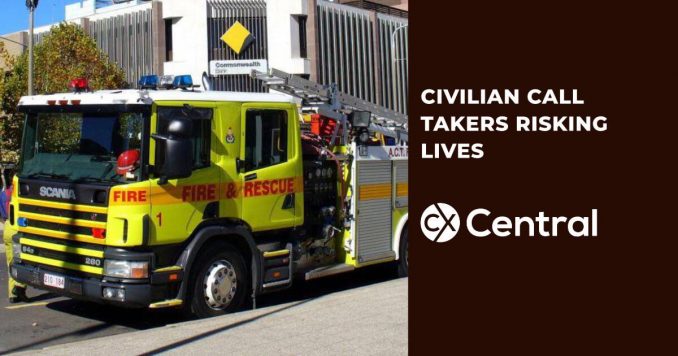
Civilian Call Takers Risking Lives
Looming dispute over ACT Emergency Services call centre
Canberra plans to overhaul the 000 call centre next year and replace the current firefighters who handle the calls with ‘civilian call takers’ handling emergency calls.
The United Firefighters Union (UFU) is concerned that by having civilians answer the calls it will put the safety and lives at risk as they are not trained professionals.
“Professional firefighters were needed in the centre to make complex operational decisions and manage a range of firefighting resources” according to branch secretary Greg McConville.
The model of using trained civilians has been working well in other emergency services operations such as ETSA in Victoria and call takers there received comprehensive training program as well as support from experienced professionals to ensure there is the right balance of skills within the centres.
The article below appeared in The Canberra Times that seemed to suggest the importance of only having professional firefighters answer calls directly.
I can’t see why with the proper training, support, Knowledge Management systems etc that a trained contact centre professional couldn’t also provide the exact same advice.
What are your thoughts?
Cook couple’s home saved by triple 0 call firefighter’s quick thinking: union
A Canberra couple who put out a grease fire in their home with the help of a firefighter on the phone would not have received the same expert help if plans to overhaul the ACT’s triple zero call centre went ahead, the firefighters union has claimed.
The ACT government plans to replace firefighters with trained civilian call takers in the ACT Emergency Services Agency’s Fairbairn communications centre, or ComCen, from July next year under a major restructure.
That plan has been staunchly opposed by the United Firefighters Union, which has argued professional firefighters were needed in the centre to make complex operational matters and manage a range of firefighting resources.
Greg McConville, UFU ACT branch secretary, said the value of firefighters manning the phones had been highlighted by the experience of a Cook couple who placed a triple zero call, which was taken by a senior firefighter after an oil fire started in their kitchen on Wednesday night.
He said the firefighter immediately dispatched a firefighting truck and told the couple to use plain flour to smother the fire and absorb the cooking oil, which enabled them to put out the fire before firefighters arrived.
“Had it not been dealt with so quickly, given the construction of the cupboards above the stove, they would have caught fire very quickly and the fire could have spread beyond the room of origin.”
Mr McConville said the union did not have a clear picture of how the overhauled communications centre and staff would operate but said members weren’t convinced trained call takers would be adequate.
“If it was entirely reliant on a script, it’s highly unlikely the same level of expertise would have been brought to bear.
“There’s no substitute to specialist knowledge and expertise.”
Mr McConville said 15 to 20 union members had lodged dispute notices with the ESA on grounds the changes to ComCen would affect firefighters’ safety and remove their capacity to develop highly important skills in command and control.
He said that dispute was now set to be taken to ESA Commissioner Dominic Lane and could eventually end up in the Fair Work Commission.
Mr Lane has defended the planned ComCen transition, saying the vast majority of triple zero calls fielded by the centre didn’t require a judgement call and key operational decisions were made at the fire scene by a senior station officer or commander.
He said the agency would also have capacity to “scale up” the call centre’s capabilities with extra employees in the event of major emergencies, and noted trained call takers were already used by Canberra’s police and ambulance service.
Mr Corbell, who claimed the changes would return a dozen firefighters to the front line, said there would be 12 months of consultation with the unions before any changes were made.
Recommended reading: Behind the scenes working at the Triple Zero call centre

Be the first to comment